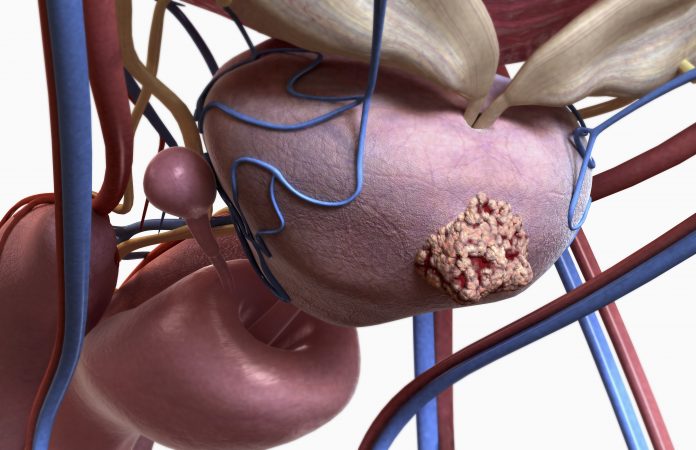
A $2.5 million five-year grant from the National Cancer Institute (NCI) will aid a University of Miami researcher to lead an effort to develop a urine test to detect prostate cancer. The research grant will be led by Sanoj Punnen, MD, co-chair of the Genitourinary Site Disease Group at the Sylvester Comprehensive Cancer Center and associate professor and vice chair of research, Desai Sethi Urology Institute.
There is a pressing need to develop non-invasive methods to detect biomarkers of significant prostate cancer via either blood samples or urine samples to reduce the need for prostate biopsies. The current method of collecting tissue samples are invasive, costly, quite often return a negative result, and can lead to post-biopsy complications, noted Punnen. While prostate screening saves lives across a population the overdiagnosis of prostate cancer leads to unnecessary prostate biopsies of low-grade cancer that doesn’t require treatment.
“There have been challenges and limitations in the past with detecting prostate cancer via urine and other noninvasive methods,” Punnen said. “But this proposal combines innovative technology from our collaborators at Exosome Diagnostics with well-annotated samples from an ongoing clinical trial of men undergoing biopsy for prostate cancer, placing us in an ideal position for developing a new platform of highly specific markers for prostate cancer detection.”
The collaboration with Exosome Diagnostics leverages the company’s expertise and technology for exosome extraction and its exosome-based test for prostate cancer called ExoDx that provides a risk score of clinically significant prostate cancer—represented by a Gleason Score greater than 7.
Working with this test, Punnen—along with co-principal investigators Alan Pollack, MD, PhD, and Sandra M. Gaston, PhD, of Sylvester Comprehensive Cancer Center—will study how to optimize the analysis of exosomes, extracellular vesicles that have shown promise as biomarkers of prostate cancer. Cancer cells release exosomes into the bloodstream and urine making them a viable molecular market of cancer, allowing researchers to study both the RNA and DNA of parent tumor.
“Essentially, we’re taking (‘Exosome Diagnostics’) current marker and hope to make it better by developing it on a more prostate cancer-specific platform,” said Punnen.
For their research, the team will use data and specimens from the NCI-funded MDSelect clinical trial that includes 250 men who are being evaluated for prostate cancer. The Sylvester researchers will have access to the tissue, blood, and urine samples collected for the trial. Using these samples, Punnen and colleagues hope to show that exosomes tagged with a cell surface protein called “prostate specific membrane antigen” (PSMA), can provide more accurate prostate cancer risk evaluations. From this, the intent is to develop a validated exosome-based signature indicative of significant prostate cancer.
“If this platform is validated, it will have important implications for patients by helping to reduce the need for invasive biopsies,” Pollack noted. “The noninvasive testing might also be used as a marker of prostate cancer treatment response and/or progression.”











